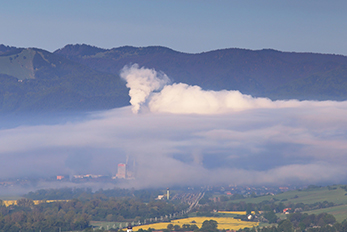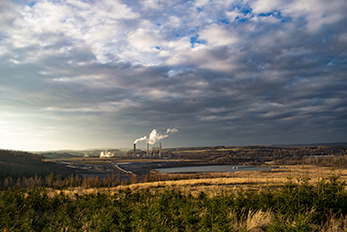Main Content
Learn how to plan and execute a well-thought-out Perimeter Air Monitoring (PAM) program in this brand new class based on the long-awaited, newly-released NJDEP guidance document.
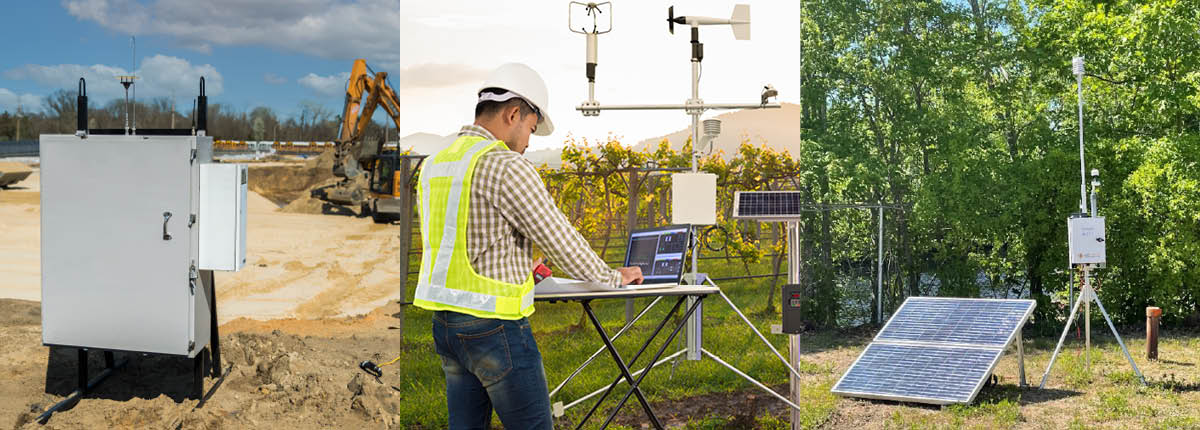
Course Status Notice – Not Scheduled
We do not have an offering of this course scheduled at this time. Please join our email list to be notified when the next offering is scheduled!
Jump to: Overview | Instructor | Reviews | CE Credits | Contact Us | Related Courses | Join Email List
Course Details
Course Name: Fundamentals of Perimeter Air Monitoring Programs
Course Code: EN0211CA24
Date of Most Recent Offering: April 17, 2024
Course Overview
Protecting off-site receptor from on-site contamination has always been one of the responsibilities of Licensed Site Remediation Professionals (LSRPs). Although LSRPs are very good at evaluating the potential pathways to receptors from the various contaminated media—including via soil, groundwater, and soil gas (vapor)—there has been an increased focus on protecting off-site receptors from airborne exposure routes while sites are undergoing remediation.
In fact, in December 2023, the NJDEP released a new technical guidance document on Perimeter Air Monitoring. This guidance applies to sites undergoing remediation under the NJDEP’s Contaminated Site Remediation & Redevelopment Program (CSRRP).
Are you unsure how to develop and implement an effective perimeter air monitoring (PAM) program for your site remediation projects? Do you understand action levels and health-based threshold values? Is selecting, operating, and maintaining proper air monitoring equipment a mystery? Don’t fret! Come learn these and other vital PAM fundamentals in this new class!
Featured Topics
This class will help you by providing an overview of the fundamentals and key components of an effective perimeter air monitoring program, as defined in the new NJDEP guidance document, including:
- Developing PAM objectives
- Development of a conceptual site model inclusive of ambient air
- Understanding action levels & health-based threshold values
- Selecting appropriate monitoring equipment and methods
- Selecting effective monitoring locations & frequency
- Operation and maintenance of air monitoring equipment
- Documentation and reporting
We will also cover other related topics, including:
- Legal considerations of collecting ambient air data
- Odor issues
Benefits of Attending
By attending this course, you will:
- Hear and learn from experienced practitioners.
- Hear directly from the NJDEP, who will discuss the new guidance document.
- See demonstrations of actual equipment (field demo)
- Learn how to plan and execute a well-thought-out PAM program that employs sound and reasonable components.
- Know how to reduce the overall risk to stakeholders during remediation and be protective to human health and the environment.
- Hear from legal and odor experts about how those elements should be considered.
Who Should Attend?
The principles covered will help LSRPs and other remediation practitioners reduce the overall risk to stakeholders during remediation and be protective to human health and the environment—regardless of the regulations.
- Licensed Site Remediation Professionals (LSRPs)
- Environmental Engineers and Scientists
- Environmental Consultants
- Construction Managers
- Remediation Managers
- Environmental Attorneys
Meet Your Faculty Coordinator
Marc Hudock, AirLogics, LLC

Mr. Hudock has more than 25 years of experience in the environmental business. He has been with AirLogics’ parent company, GZA GeoEnvironmental, Inc., since 2006. In 2020, he took the helm of AirLogics as Operations Manager. His role is to see that clients receive reliable, high-quality service that meets applicable technical and regulatory requirements and is delivered within budget. Mr. Hudock’s experience with construction management projects and in environmental site remediation, as a Licensed Site Remediation Professional (LSRP), provides a wealth of practical knowledge for AirLogics clients planning and implementing Perimeter Air Monitoring programs.
Meet Your Instructors
Bill McClellan, AirLogics, LLC
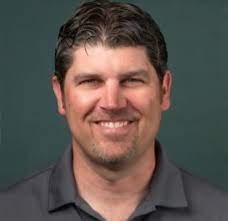
Mr. McClellan has been with AirLogics since 1998 and is their foremost perimeter air monitoring specialist. He also has a deep understanding of field gas chromaphotography (GC). Having been directly involved in nearly every one of AirLogics 185 equipment deployments since 1998, he understands the components of a successful perimeter air monitoring program, including identification and placement of the correct monitoring equipment to gather data, the associated telemetry required to transmit that data, as well as the review and interpretation of that data.
Allan Motter, NJDEP

Allan Motter has a BS in Biology from Albright College and a Master of Environmental Management degree in ecotoxicology from Duke University. Mr. Motter has worked in the environmental field for 32 years both in private consulting and government. Mr. Motter has experience authoring State regulations and guidance documents, and chairing committees regarding State policy concerning sampling, analysis, monitoring and remediation of hazardous waste sites, and soil remediation standards. Mr. Motter currently works as a Technical Coordinator where he oversees all technical aspects of remediation at assigned hazardous waste sites in New Jersey, as well as reviewing and performing ecological risk assessments for environmentally sensitive areas that have been impacted by hazardous waste sites. Mr. Motter has overseen the remediation of two large sediment remediation projects totaling over $56 million.
Benjamin Sallemi, PhD, GZA GeoEnvironmental, Inc.
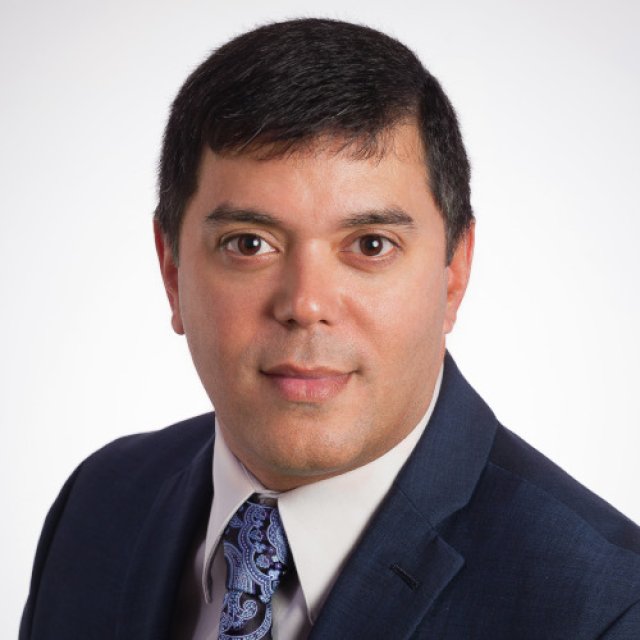
Dr. Sallemi has over 30 years of experience as an Environmental Consultant. He has extensive consulting, project management and field experience regarding the identification and mitigation of airborne contaminants. In 2012, Dr. Sallemi was awarded his Doctorate in Environmental Science from the Graduate Center of the City University of New York. Subsequent to receiving his Doctorate, Dr. Sallemi became a Certified Industrial Hygienist and was appointed to the New Jersey Department of Environmental Protection’s (NJDEP’s) Science Advisory Board, Public Health Standing Committee.
Erica Snyder, NJDEP, CSRR
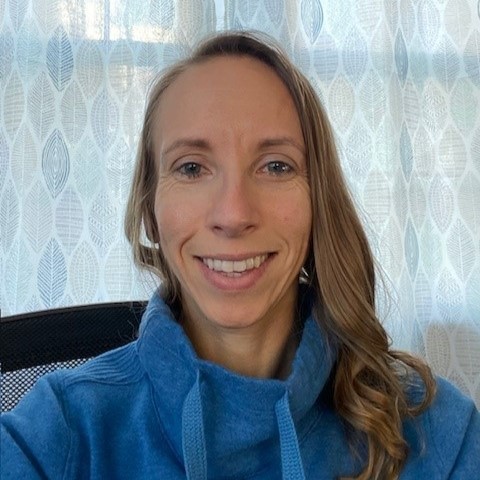
Erica Snyder is a Research Scientist and Supervisor for the Department’s Bureau of Environmental Evaluation and Risk Assessment (BEERA). She has approximately 20-years of experience in the field of human health risk assessment and is currently the Contaminated Site Remediation and Redevelopment (CSRR) contact for the development of ingestion-dermal soil remediation standards, indoor air remediation standards, and screening levels for the vapor intrusion exposure pathway. Mrs. Snyder currently co-chairs the Department’s recently released Perimeter Air Monitoring Technical Guidance and the Alternative Remediation Standards Technical Guidance for Ingestion-Dermal and Inhalation Exposure Pathways for Soil. She also serves on the Department’s Vapor Intrusion Technical Guidance committee. Prior to her role in BEERA, Mrs. Snyder was a human health risk assessor and air quality forecaster for the Division of Air Quality. She also has prior experience working as a chemist for an air analytical laboratory.
Darryl Borrelli, Manko Gold Katcher Fox

Darryl has been the senior technical consultant at Manko, Gold, Katcher & Fox LLP since 1992. He brings more than 30 years of experience and a practical approach to assisting the firm’s clients in solving their environmental problems. Darryl’s advice routinely saves clients’ money by employing cost effective and innovative methods. Darryl’s background in industry (chemical, petroleum, manufacturing), finance, and government provide him with a broad base of knowledge and experiences. He holds both Bachelors and Master’s degrees in engineering. Darryl has been involved in several nationally recognized Brownfield redevelopment projects as well as numerous Superfund cleanups. He routinely assists clients with transactional related due diligence and is particularly skilled at working with clients’ lenders and investors. Recent projects involve counseling clients on complex sediment remediation issues that also involve aspects of multi-party litigation.
Tom Duncan, Manko Gold Katcher Fox

Tom is a partner with Manko, Gold, Katcher & Fox, LLP. He concentrates his practice on environmental transactional matters, regulatory counseling, and environmental litigation. He is also a member of the firm’s air practice group. Tom handles a wide range of environmental matters, including brownfield redevelopment projects and transactional-related environmental due diligence. He represents entities in multi-party state and federal litigation involving cost recovery and indemnity claims, as well as contribution claims for contamination and remediation conducted under CERCLA, RCRA, and state laws. Tom represents private equity investors, developers, manufacturers, and institutions in transactions involving current and former industrial sites in which environmental risks and liabilities were critical to the structure of the transaction and investment analysis. In connection with those representations, Tom negotiates the environmental aspects of transactional agreements, regulatory consent agreements, and prospective purchaser agreements. He has negotiated technically complex consent decrees with the U.S. Department of Justice, the U.S. Environmental Protection Agency, and state agencies, and has conducted extensive internal environmental audits. Tom holds a governor-appointed position as a member of the Environmental Hearing Board Rules Committee. Tom is also a member of the Delaware Valley Environmental American Inn of Court and serves on the Board of the Lower Merion Conservancy.
Doug Bannon, NJDEP Odor Unit
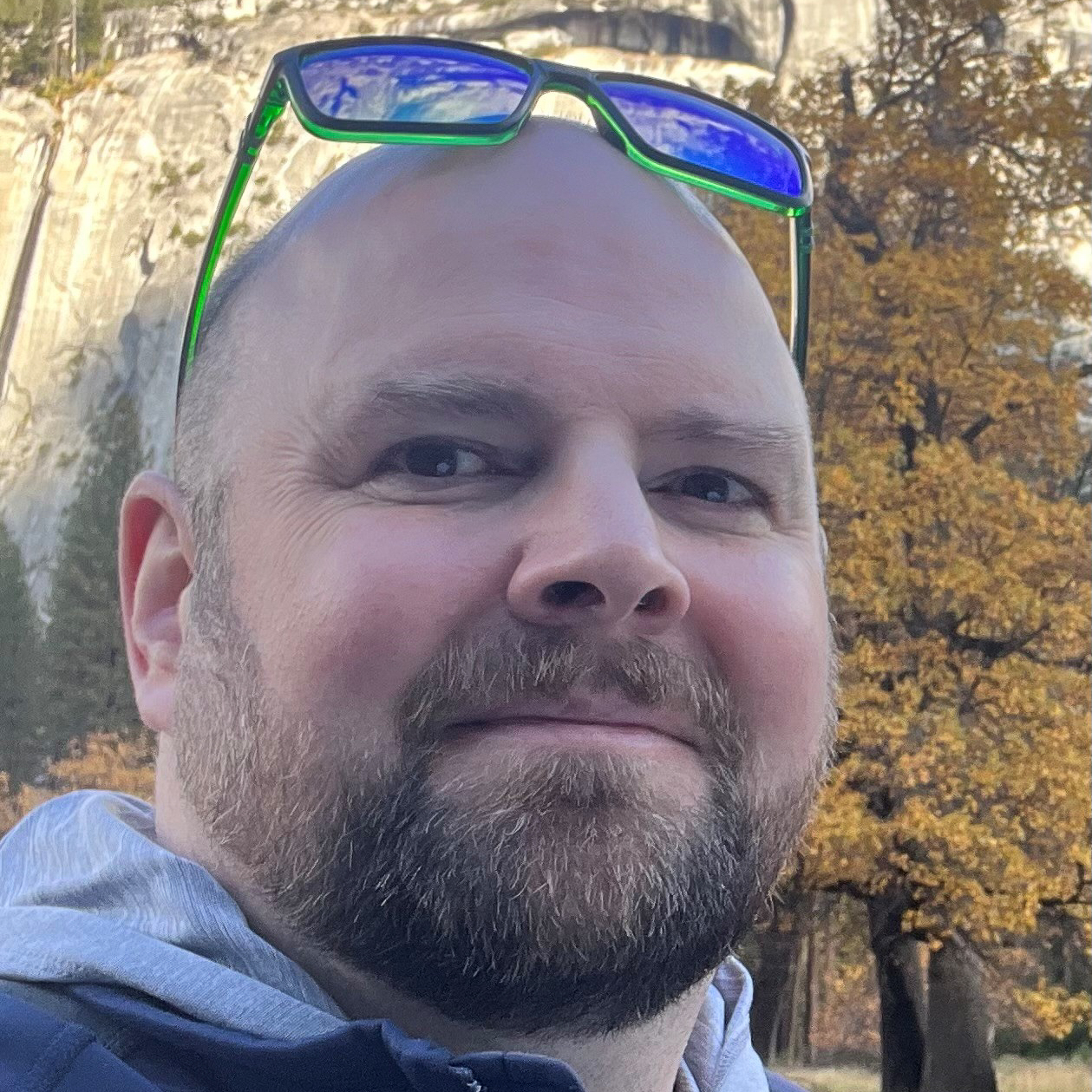
Doug Bannon is a supervisor for the New Jersey Department of Environmental Protection’s Division of Air Enforcement. He has over 20 years of experience in odor enforcement in the Northern Regional Office.
Andy Rezendes, Pace Analytical
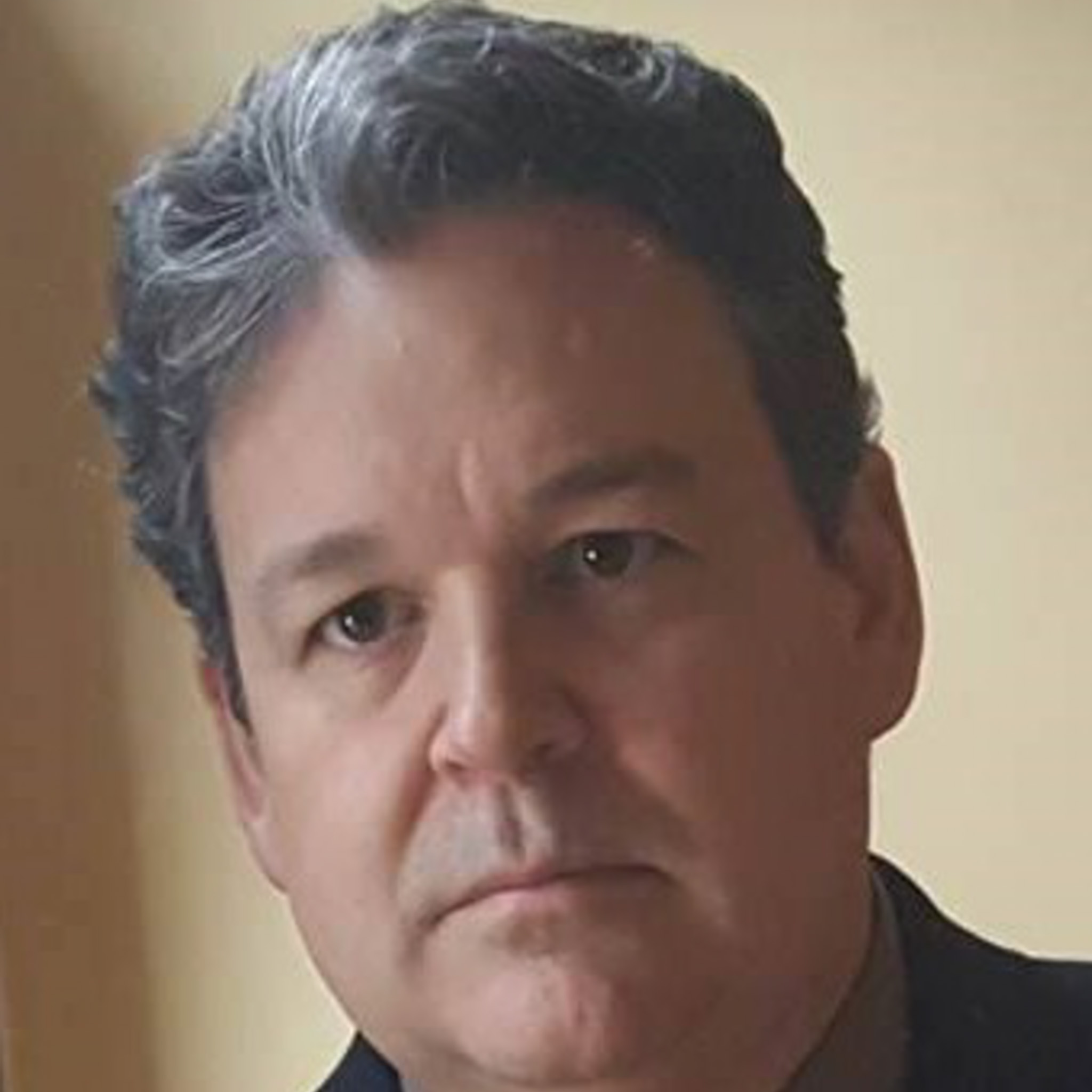
Andy has over 30 years experience in environmental analytical chemistry, and over 20 years of which are specific to air analysis. He was formerly the manager of ENSR’s Air Toxics Lab and is currently the Technical Director for air testing services at Alpha Analytical located in Massachusetts, where he started their air testing operation in 2002. While at Alpha, Andy has conducted research in sulfide and mercaptan analysis, a comparative studies involving the measurement of naphthalene in ambient air, and background VOCs related to vapor intrusion investigations in both residential and commercial buildings. He has conducted vapor intrusion coursework sponsored by the Massachusetts LSP Association and other organizations, as well as participated in the development of the ITRC Petroleum Vapor Intrusion Guidance document.
Continuing Education Credits
The most recent offering of the Fundamentals of Perimeter Air Monitoring Program was approved for 0.5 Rutgers CEUs (5 contact hours), as well as the following credits from professional organizations. We will reapply for similar credits the next time the course runs, but we cannot guarantee credit approval for future offerings.
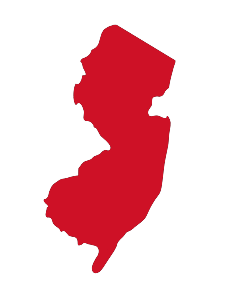 New Jersey
New Jersey
NJ Certified Public Works Managers (CPWM): 5 Government Contact Hours
NJ Continuing Legal Education: 5.0 CLEs – Course No. 285
NJ Health Officers and Registered Environmental Health Specialists (HO/REHS): Rutgers University, NJAES, Office of Continuing Professional Education has been approved by the New Jersey Department of Health as a provider of NJ Public Health Continuing Education Contact Hours (CEs). Participants who complete this education program will be awarded 5 NJ Public Health Continuing Education Contact Hours (CEs).
NJ Licensed Site Remediation Professionals (LSRP): 1 Regulatory and 4 Technical CECs
NJ Professional Engineers: 5 Continuing Professional Competency (CPC) Credits
Meals
![]() No breakfast will be provided. Lunch will be available for pre-registered attendees only.
No breakfast will be provided. Lunch will be available for pre-registered attendees only.
NOTE: If you have any dietary restrictions or food allergies, please alert us at least one (1) week in advance of the course start date so that we can make reasonable accommodations. We cannot guarantee accommodations for special requests made after that time.
Program Questions? We’re Here to Help!
If you have any questions about the Fundamentals of Perimeter Air Monitoring Program, please don’t hesitate to reach out to us.

Program Coordinator: Pamela Springard-Mayer
848-932-7463
pspring@rutgers.edu
For registration assistance, please contact our Registration Department at 848-932-9271, option 2 or email registration@njaes.rutgers.edu.

